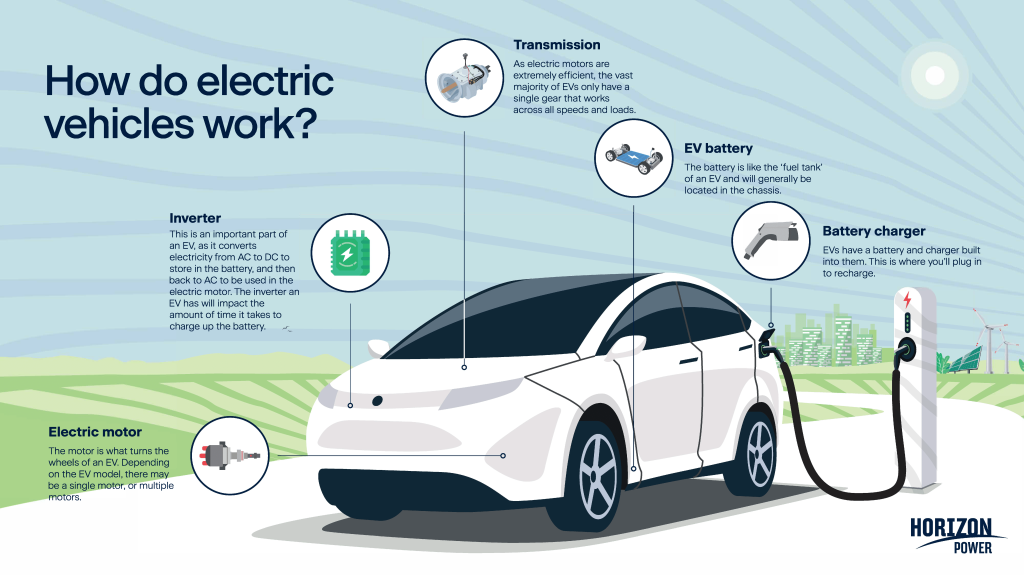Revolutionizing Energy: Unleashing The Power Of Electric Vehicle Technology
The Impact of Electric Vehicle Technology on Energy
Introduction:
Electric vehicle technology has revolutionized the automotive industry in recent years. With the increasing concerns about climate change and the need for sustainable transportation, electric vehicles have emerged as a promising solution. Not only do they offer a cleaner and greener alternative to traditional gasoline-powered cars, but they also have the potential to significantly impact the energy sector. In this article, we will explore the various ways electric vehicle technology impacts energy consumption, production, and distribution.
3 Picture Gallery: Revolutionizing Energy: Unleashing The Power Of Electric Vehicle Technology



Body Paragraphs:
What is Electric Vehicle Technology?

Image Source: visualcapitalist.com
Electric vehicle technology refers to the use of electric motors and batteries to power vehicles instead of internal combustion engines. These vehicles rely on stored electrical energy to propel themselves, eliminating the need for fossil fuels. Electric cars, buses, motorcycles, and even bicycles are some examples of electric vehicles that are gaining popularity worldwide.
Who is Driving the Electric Vehicle Revolution?
The electric vehicle revolution is being driven by a combination of factors. Environmental concerns and the desire to reduce greenhouse gas emissions have prompted governments, automakers, and consumers to embrace electric vehicles. Additionally, advancements in battery technology, the availability of charging infrastructure, and financial incentives have also played a crucial role in promoting the adoption of electric vehicles.
When and Where Did Electric Vehicles Gain Traction?
Electric vehicles have a long history, with their roots dating back to the early 19th century. However, it is only in recent years that electric vehicles have gained significant traction. Countries like Norway, China, and the Netherlands have been at the forefront of the electric vehicle revolution, with generous subsidies, tax incentives, and infrastructure development. The adoption of electric vehicles is expected to continue growing globally, as more countries recognize the environmental and economic benefits they offer.
Why are Electric Vehicles Beneficial for the Energy Sector?

Image Source: horizonpower.com.au
Electric vehicles offer several benefits for the energy sector. First and foremost, they reduce greenhouse gas emissions and air pollution, making them a cleaner alternative to traditional vehicles. By replacing gasoline-powered cars with electric ones, the demand for fossil fuels can be significantly reduced, leading to a lower carbon footprint. Additionally, electric vehicles can also serve as a storage solution for renewable energy sources like solar and wind, helping to stabilize the grid and increase the integration of clean energy into the system.
How Does Electric Vehicle Technology Impact Energy Consumption?
Electric vehicles have the potential to significantly impact energy consumption patterns. While they consume electricity from the grid, their overall energy consumption is often lower compared to traditional vehicles. This is because electric motors are more efficient than internal combustion engines, resulting in less energy waste. Additionally, the use of regenerative braking technology allows electric vehicles to recover and store energy that is typically lost in conventional braking systems.
Frequently Asked Questions (FAQ) about Electric Vehicle Technology and Energy:
Q: Are electric vehicles more expensive to operate than traditional vehicles?

Image Source: rgstatic.net
A: While electric vehicles may have a higher upfront cost, they are generally cheaper to operate in the long run due to lower fuel and maintenance costs.
Q: How long do electric vehicle batteries last?
A: The lifespan of electric vehicle batteries varies depending on usage and environmental factors. On average, most electric vehicle batteries last between 8 to 15 years.
Q: Is the charging infrastructure sufficient for widespread electric vehicle adoption?
A: The charging infrastructure is continuously improving, and many countries are investing in expanding the network. However, more efforts are needed to ensure widespread availability and fast charging options.
Conclusion:
Electric vehicle technology has undoubtedly made a significant impact on energy consumption, production, and distribution. As more countries and individuals embrace electric vehicles, the benefits for the energy sector will continue to grow. By reducing greenhouse gas emissions, increasing the integration of renewable energy sources, and improving energy efficiency, electric vehicles have the potential to play a crucial role in achieving a sustainable and greener future. It is essential for governments, industries, and consumers to continue supporting and investing in electric vehicle technology to maximize its positive impact on energy and the environment.
This post topic: Electric Car Technology


